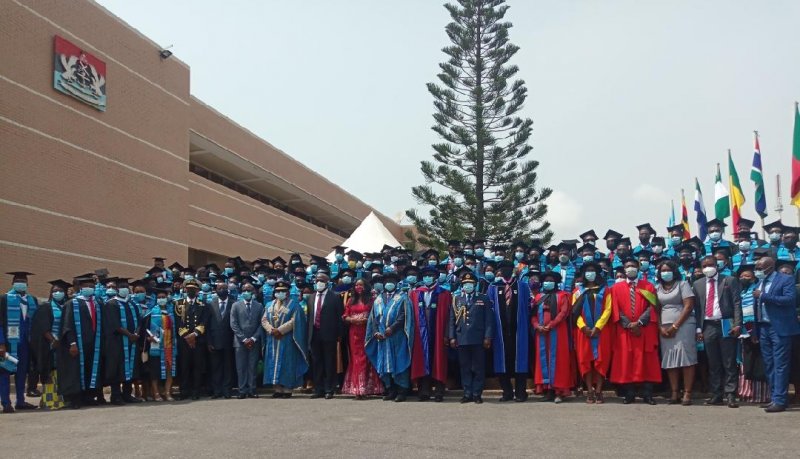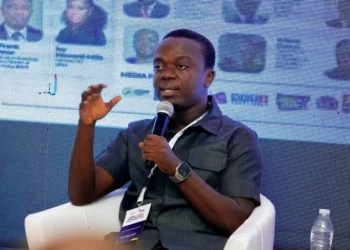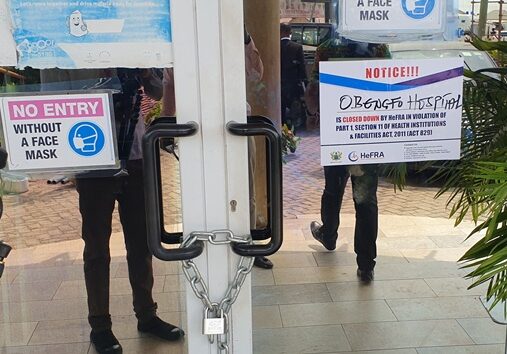The Kofi Annan International Peacekeeping Training Centre (KAIPTC) has held its Ninth Congregation during which 140 post-graduate students from seven different countries graduated.
The graduates, who were from Ghana, Cameroun, Chad, The Gambia, Mali, Nigeria, and Uganda, were made up of 62 females (44 per cent) and 78 males (56 per cent).
The Joint Congregation, which was held at the Burma Hall, Burma Camp in Accra, was chaired by Professor Martin Morgan Tuuli, the Deputy Rector of the Ghana Institute of Management and Public Administration (GIMPA).
It was on the theme: “Providing skills to meet Business and Human Security Needs in Uncertain Times.”
The graduating students were awarded Executive Master of Arts in Conflict, Peace and Security; Master of Arts in Conflict, Peace and Security; Master of Arts in Gender, Peace and Security; and Weekend Master of Arts in Conflict, Peace and Security.
The Centre also awarded a doctoral degree to their first two Doctor of Philosophy (PhD) candidates, (PhD in International Conflict Management).
Major General Francis Ofori, Commandant, KAIPTC, in his report to the Congregation, noted that the year 2020 was characterised by a confluence of a host of uncertainties which dramatically exposed many human and business security gaps globally; citing the COVID-19 pandemic.
“If there is one lesson that the COVID-19 pandemic has taught us, it is the fact that no country, no economy, no sector and absolutely no one is immune from uncertainties,” he said.
He said economic measures to safeguard jobs, guarantee wages and support the self-employed, might prove insufficient; declaring that the theme for their Congregation was apt.
He said the quest for ensuring peace and security globally had been hindered from the onset of the COVID-19 pandemic.
The Commandant said the surge in existing grievances and vulnerabilities in many states was a threat to destabilise global peace and security.
He said the challenges and dilemmas of uncertain times reveal the choices and decisions made before the onset of uncertainties.
“Although uncertain times do not announce their arrival, the measures we put in place, the skills we develop, and our attitudes before and during crises, will determine its impact on us,” he said.
Major General Ofori said it was essential to understand the multi-faceted interaction between human and business security needs in times of uncertainties.
He said the current uncertainty created by the COVID-19 pandemic had impacted every dimension of human security; economic, food, health, environmental, personal or community security.
“We have witnessed many business giants topple helplessly, while small scale businesses have risen to fame effortlessly during this pandemic.”
He said ensuring business security was securing skills that would permit the needed adaptation and responsiveness at the appropriate time of need.
“It is, therefore, our objective to continue equipping students with the academic foundation, analytical tools, theoretical, and practical skills to bloom through uncertain times,” he said.
“There is the need to confront uncertainties through and beyond the crises, build more resilient youth to face the current uncertainties within the global economy and any other future disruptions.”
He said the youth had an essential role to play in shaping the post-COVID-19 world.
He said as efforts were being made to save lives and overcome this menace, developing digital skills would be pivotal.
Major General Ofori said the dependence on digitalized platforms like zoom in the peak of the pandemic must encourage them not just to upgrade their skills in their utilisation, but more importantly to secure such platforms to prevent criminals from exploiting our ignorance.
Sir Sam Jonah, the Chairman of Jonah Capital Limited, who was the special guest of honour, said in the world of work, employers would be seeking for graduates who were able to communicate fluently, effectively and had good emotional intelligence skills.
“Employers will be looking out for graduates who are professional, courteous, polite and conscientious in their work,” he said.
Mrs Patricia Obo-Nai, Chief Executive Officer, Vodafone Ghana, who was the guest speaker, commended the KAIPTC for having positioned itself enviably as one of Africa’s foremost institutions offering specialized training and quality support for the international community and for African Governments.










Discussion about this post